As a BetterHelp affiliate, we receive compensation from BetterHelp if you purchase products or services through the links provided
When dealing with a narcissist, you might find yourself ignored despite your best efforts to establish a connection. This experience can leave you confused and hurt, questioning your self-worth. Understanding why narcissists resort to ignoring others can provide some clarity and help you navigate these complicated relationships.
A narcissist’s tendency to dismiss and ignore others can be linked to their inherent need for control and manipulation. To ensure that they remain at the center of attention, they employ various tactics to maintain power over their relationships. By actively ignoring you, they attempt to manipulate your emotions and control your behavior, ultimately seeking to maintain their self-importance.
Key Takeaways
- Ignoring others is a common tactic used by narcissists to maintain control and manipulate emotions.
- The objectives of ignoring can include creating an emotional roller coaster and seeking a narcissistic supply
- Victims need to set boundaries, seek support, and consider therapy to cope with narcissists in their lives.
 Understanding a Narcissist
Understanding a Narcissist
As you interact with a narcissist, it’s essential to grasp what drives their behavior. Narcissistic Personality Disorder (NPD) is a mental health condition characterized by an inflated sense of self-importance, a deep need for admiration, and a lack of empathy for others. Recognizing these traits can help you navigate your relationship with a narcissist more effectively.
Narcissists thrive on constant attention and admiration. They often exaggerate their achievements to boost their image, creating a facade of grandiosity. It is crucial to understand that their actions are ruled by their desire for validation, not malice towards you.
In a narcissistic relationship, the narcissist’s needs always come first. They have difficulty forming genuine connections with others because they lack empathy, making it challenging for them to understand or value their feelings. As a result, when you share your emotions or concerns, they may ignore or dismiss them.
Here are some key takeaways to remember:
- Narcissistic Personality Disorder drives their behavior.
- They need constant attention and admiration.
- Lack of empathy makes it hard for them to form genuine connections.
By understanding the reasoning behind a narcissist’s actions, you can better cope with the relationship dynamics and set boundaries to protect yourself. Remember, it’s not about you but their need for affirmation and control.
Why Ignoring is a Narcissist’s Tool
Ignoring someone is often seen as a silent treatment, and for a narcissist, it’s one of their go-to strategies. You might wonder why a narcissist ignores you, as it seemingly contradicts their need for attention. In reality, when a narcissist ignores you, it’s because they want to regain a sense of control and power over you.
First, it’s essential to understand that narcissists use the silent treatment intentionally to make you feel unworthy and insignificant. By doing this, they regain the upper hand in the relationship and gain the attention they crave. They stonewall you and refuse to engage in conversation, causing confusion, frustration, and self-doubt.
Now, let’s dig deeper into some reasons why a narcissist might ignore you:
- Punishment: A narcissist might ignore you as a form of punishment for not obeying their wishes or not giving them the attention they believe they deserve.
- Manipulation: The silent treatment can be a powerful manipulation tool to evoke a desired reaction from you, such as an emotional outburst or an apology. They’ll then use this reaction to validate their behavior and further manipulate the situation.
- Avoidance: A narcissist might use the silent treatment as a defense mechanism to dodge uncomfortable emotions or conversations that might challenge their ego.
Keep in mind the following tips when dealing with a narcissist who’s ignoring you:
- Stay calm and maintain your self-worth despite their behavior.
- Don’t try to force a conversation or engage in their manipulative tactics.
- Seek support from friends, family, or a professional therapist if necessary.
Remember, when a narcissist ignores you, it’s a tool they use to maintain control and elicit reactions. By understanding this behavior and focusing on your self-worth, you’ll be better equipped to navigate the complexities of a relationship with a narcissist.
 The Objectives of Ignoring
The Objectives of Ignoring
When dealing with a narcissist, you might find yourself being ignored. As confusing and hurtful as it may be, some reasons behind their behavior exist. Let’s explore the objectives of this tactic and how it helps them achieve control and power over you.
Manipulating your emotions: Narcissists use ignoring as a tool to manipulate your emotions. By ignoring you, they create a sense of uncertainty in your mind, making you worried, anxious, or guilty. By taking away their attention, they trigger a response in you to seek validation, thus giving them power over your emotional state.
Testing your loyalty: Narcissists thrive on the validation and admiration of others. They might ignore you to test your loyalty and commitment to them. By making you chase after their attention, they get the reassurance they crave and use this as proof of their importance or superiority.
Gaining control over you: Narcissists are often power-hungry individuals who want to maintain control over their relationships. When they ignore you, they effectively control the flow of communication, putting them in a position of power. This tactic allows them to determine when, where, and how much attention is given or received, ensuring they always call the shots.
Lying and deception: Sometimes, narcissists may use ignoring as a cover for their lies and deception. By ghosting you or providing the silent treatment, they buy time to craft a new narrative or manipulate the truth in their favor. This tactic helps them maintain their false self-image or avoid the consequences of their actions.
To deal with a narcissist who ignores you, follow these tips:
- Acknowledge your feelings and seek validation from other sources, such as friends or hobbies.
- Set boundaries and assert yourself in the relationship.
- Educate yourself about narcissistic personality disorder to recognize their tactics and stay one step ahead.
Remember, you deserve respect, and while dealing with a narcissist can be challenging, understanding their objectives will help you navigate a relationship with them more effectively.
 The Emotional Roller Coaster
The Emotional Roller Coaster
Going through a relationship with a narcissist can often feel like you’re riding an emotional roller coaster. One moment, you’re showered with attention and affection; the next, you’re completely ignored. This emotional whiplash can leave you feeling confused, hurt, and ultimately manipulated. Let’s explore the underlying reasons and the emotions this behavior can evoke, like fear, shame, guilt, anger, and jealousy.
Narcissists crave power over others, and one way to achieve this is by controlling your emotions. By ignoring you, they instill fear and insecurity in the relationship, causing you to question your self-worth. Feelings of shame and guilt might accompany this, as you may blame yourself for their sudden behavior change.
Anger is a natural response to this emotional roller coaster, as you feel you are being toyed with. It’s important to remember that your feelings are valid, and it’s okay to express your anger healthily. Feeling jealous, too, is expected, as narcissists often flirt with or praise others while ignoring you in an attempt to induce envy and further manipulate you.
Here is a recap of the emotions that you might experience:
- Fear: A narcissist’s sudden withdrawal of affection can make you doubt your worth and relationship stability.
- Shame: Their behavior change might make you feel at fault or embarrassed.
- Guilt: This constant withholding of emotional support can trigger feelings of guilt for not being “enough” for the narcissist.
- Anger: The emotional manipulation can rightfully evoke anger and frustration.
- Jealousy: A narcissist might exploit your vulnerability by deliberately making you jealous of others.
Remember, you deserve to be treated with kindness and respect. Understanding the emotional roller coaster initiated by a narcissist is the first step to distancing yourself from their manipulation and cultivating a healthier emotional environment for yourself.
 Gaslighting and Stonewalling
Gaslighting and Stonewalling
Gaslighting and stonewalling are common tactics narcissists use to manipulate and control their targets. Let’s explore why a narcissist might ignore you and how these strategies come into play.
Gaslighting is a psychological tactic where the narcissist lies, denies, and twists the truth to make you doubt your reality. They might make you believe that you’re overreacting or losing your mind. This can leave you questioning your thoughts, memories, and emotions, ultimately making you more vulnerable to their lies and control.
For example, if you confront a narcissist about something hurtful, they said, they might deny ever saying it or claim you misunderstood them. This can leave you second-guessing your memory and judgment.
Stonewalling, on the other hand, is when a narcissist purposely ignores you, refusing to communicate or engage in a conversation. This can leave you feeling isolated and silenced, struggling to express your feelings healthily and productively. Narcissists use stonewalling to avoid taking responsibility for their actions, invalidate your feelings, and wear you down.
Here are some points to remember when dealing with gaslighting and stonewalling:
- Trust your instincts and emotions: Don’t let a narcissist’s lies make you doubt your reality.
- Set boundaries: Narcissists are skilled at manipulating people, but setting clear boundaries can help protect your mental and emotional well-being.
- Seek support: Connect with friends, family, or a therapist who understands narcissistic abuse and can help validate your experiences.
- Focus on self-care: Prioritize your physical, emotional, and mental health by practicing good self-care habits.
By understanding these manipulation tactics, you can recognize the behavior patterns and protect yourself from further harm. Remember, you are not alone in this struggle and deserve to be heard, respected, and validated regardless of the narcissist’s attempts to devalue or control you.
 Seeking Narcissistic Supply
Seeking Narcissistic Supply
Narcissists constantly crave attention and admiration from others to fuel their sense of self-worth. This is often referred to as a narcissistic supply. When a narcissist ignores you, it could be because they are looking to replenish their supply elsewhere.
You may notice that the narcissist tends to surround themselves with people who provide validation and admiration. They might be seeking out new relationships or sources of supply, making you feel invisible.
It’s important to remember that their behavior is not about you but their own need for validation. The more you understand this, the easier it will be to deal with it when they ignore you.
Here are some common reasons why a narcissist might ignore you:
- Boredom: Narcissists thrive on drama and excitement, and they might lose interest if they think you don’t provide that. They may ignore you to pursue other relationships that provide new sources of narcissistic supply.
- Punishment: If they feel criticized or challenged by you, the narcissist might ignore you as a way to punish you. By withholding their attention, they control the situation and make themselves feel superior.
- Manipulation: Ignoring you could be a tactic to test your limits, see how much you will tolerate, or make you feel guilty and desperate for their validation. In this case, they are using silence as a manipulative tool to control you and maintain their position of power.
To navigate a relationship with a narcissist, try focusing on your well-being and setting boundaries. Remember, their behavior is a reflection of their insecurities and need for narcissistic supply, not a genuine measure of their worth.
 The Cycle of Love-Bombing and Devaluation
The Cycle of Love-Bombing and Devaluation
When a narcissist enters your life, they often use a tactic known as love-bombing. Love-bombing is a manipulative technique where the narcissist showers you with excessive affection, gifts, and compliments to win your trust and control you as their partner (love bombing).
As you become more invested in the relationship, the narcissist will suddenly shift gears and initiate a new phase known as devaluation. This is where they will gradually ignore and belittle you, undermining your self-esteem and sense of worth. During this phase, you may feel confused about the drastic change in your behavior and desperate for the love you initially experienced.
Here are a few key details to keep in mind about the cycle of love-bombing and devaluation:
- Love-bombing creates an addictive high: The overwhelming love and attention you receive during the love-bombing phase creates a solid emotional bond. This bond can feel incredibly intense if you crave affection and validation.
- Devaluation leads to self-doubt: The narcissist’s sudden coldness and constant criticism during the devaluation phase can leave you questioning yourself and the relationship. You might begin to believe you’re the problem and work harder to win back their love.
- Extinction and breakup: Eventually, the narcissist may discard you when they no longer find you useful or when they have secured a new source of attention. However, in some cases, the narcissist might return and attempt to rekindle the relationship, repeating the cycle of love-bombing and devaluation.
Breaking free from this cycle can be incredibly challenging, especially when under the spell of a narcissist. But recognizing the pattern and understanding their motives are vital steps to regain control of your life. Remember that you deserve a partner who values and respects you consistently, not someone who manipulates your emotions for their gain.
 Impact on the Victim
Impact on the Victim
Being ignored by a narcissist can leave you feeling a whirlwind of emotions. It’s essential to understand how this form of narcissistic abuse impacts the victim, both emotionally and psychologically.
As you endure this type of abuse, your sense of shame and fear intensifies. You might worry about what you’ve done wrong or if you deserve such treatment. These feelings can gradually erode your self-esteem, making you feel like you’re not good enough for them or anyone else.
Narcissistic abuse often leads to long-lasting wounds and, in some cases, even PTSD (Post-Traumatic Stress Disorder). Living in a constant state of anxiety and vulnerability makes it extremely challenging to move forward.
Consider the various effects of this abuse on your life:
- Emotional rollercoaster: You might experience anxiety, depression, and guilt, affecting your overall well-being.
- Negative self-perception: Your self-worth may plummet as you internalize the abuser’s warped sense of reality.
- Isolation: You may distance yourself from friends and loved ones, feeling ashamed or afraid to share your experiences.
- Loss of trust: It could become difficult to trust others, even those who genuinely care about your welfare.
Remember, dealing with a narcissist can take a toll on your emotional and mental health. It’s crucial to recognize the signs of abuse and seek professional help if needed. Lean on your support system and explore coping strategies to regain confidence and self-worth. You deserve a life that’s free from manipulation and cruelty.
 Setting Boundaries and Taking Control
Setting Boundaries and Taking Control
It’s essential to set boundaries when dealing with a narcissist in your life. Their manipulative tactics can take a toll on you, so taking control and standing up for yourself is essential. Here are some key strategies to help you do just that:
- Be firm in your decisions: When you make a decision, stick to it and don’t let the narcissist sway you. They may use guilt or flattery to change your mind, but remember, it’s your life, and you’re in control.
- Establish clear boundaries: Make it clear to the narcissist what you expect from them in terms of behavior and communication. This can help minimize the chances of them walking all over you or making decisions on your behalf.
- Disengage when necessary: If you feel the conversation is becoming too heated or the narcissist is trying to manipulate you, step away. Give yourself some space to regroup and practice self-care.
- No contact: In some cases, the best approach may be to cut off all contact with the narcissist. This can be tough, but protecting your mental and emotional well-being might be necessary.
Remember, taking control of your relationship with a narcissist is crucial for your peace of mind. By setting boundaries, standing up for yourself, and, if necessary, going no contact, you can regain your sense of self and emotional health.
 Seeking Support and Therapy
Seeking Support and Therapy
Recognizing a narcissist’s behavior can be disheartening, especially when they ignore you. However, it’s important to remember you’re not alone. Seeking support and therapy is a helpful method to cope with this situation and understand the root of their behavior.
Having friends and family by your side is crucial. Share your experience with them; they might have their insights into the narcissist’s motives or behavior. Your loved ones can provide emotional support and help you maintain a positive mindset during this challenging time.
Seeking professional therapy is another valuable option. A therapist or counselor who specializes in relationships or narcissistic personality disorders can provide insights into the specific reasons why a narcissist may be ignoring you. They can also guide you through strategies to cope with their behavior and protect your emotional well-being.
- Remember self-care: Taking care of your emotional and mental health is paramount. Engage in activities that bring you joy and relaxation.
- Establish boundaries: Setting healthy boundaries can help you maintain a safe emotional distance from the narcissist, protecting yourself from further emotional harm.
- Keep a journal: Writing down your thoughts and feelings can help process your emotions, making it easier to communicate with others or your therapist about your experiences.
The key takeaway here is that seeking support, whether through friends, family, or professional therapy, is crucial for understanding and coping with a narcissist’s behavior. Never hesitate to reach out for help, and always prioritize your well-being. You deserve to be surrounded by people who value, respect, and care for you.
Frequently Asked Questions
Why do narcissists go silent after a breakup?
Narcissists often go silent after a breakup because it’s their way of maintaining control over the situation. They may feel hurt or rejected, and ignoring you can make them feel superior. This silence also allows them to manipulate the narrative and put themselves in the victim’s role.
Key takeaway: Narcissists’ silence is a power play, not a sign of emotional maturity.
How long do narcissists typically ignore someone?
There’s no specific timeframe for how long a narcissist might ignore someone, as it depends on the individual and the situation. However, they may ignore you for hours, days, weeks, or months to maintain control and feel superior.
Key takeaway: A narcissist will ignore you as long as they feel it serves their purpose.
How to tell if a narcissist is done with you?
Signs that a narcissist might be done with you include discarding you emotionally or physically, no longer seeking your attention or validation, and finding a new target to manipulate. They might also no longer react to your attempts at communication and completely ignore you.
Key takeaway: A narcissist is done with you when it’s clear they’ve moved on to a new target or no longer view you as a source of supply.
Do narcissists ignore questions on purpose?
Yes, narcissists often ignore questions on purpose as a way of maintaining control and asserting dominance. They might feel threatened by a challenging question or ignore it to exert power over the conversation and the person asking it.
Key takeaway: Ignoring questions is another manipulation tactic used by narcissists to maintain control.
What to do when a narcissist is ignoring texts?
When a narcissist is ignoring your texts, it’s essential to prioritize your emotional well-being. Resist the urge to keep reaching out, and give yourself space to reflect on why you’re seeking their validation. Instead, focus on activities that bring you joy and surround yourself with supportive friends and family.
Key takeaway: Prioritize self-care and resist the urge to chase a narcissist’s validation when they ignore your texts.
Why do narcissists purposely trigger their partners?
Narcissists purposely trigger their partners to create emotional reactions and break down their self-esteem. They might provoke arguments or intentionally hurt their partner’s feelings to assert dominance and control. They can feed their sense of power and superiority by undermining your emotional well-being.
Key takeaway: A narcissist’s goal is to assert control, and triggering their partner is one way to achieve this.
Meet Jacob Maslow
- Mental Health Advocate & Lexapro User
- Resilient Survivor of Narcissistic Abuse
- Finds Solace in Long Walks
- ✍️ Writer on Narcissism & Mental Health Topics
- Founder of a Legal Advice Platform for Custody Challenges
- Dedicated to Helping Others Overcome and Thrive
Navigating the Storm: My Life with a Narcissistic Ex
Jacob Maslow’s Journey Through Narcissistic Abuse and Mental Health Recovery
Hello! I’m Jacob Maslow, and I’m here to share my journey through the complex and often painful world of dealing with a narcissistic ex-partner. This experience has been both challenging and enlightening, deeply affecting my mental health and family life.
The Narcissist’s Playbook: My ex exhibited classic narcissistic behaviors, abruptly ending cooperation with reunification therapy once it began helping our kids. This is a hallmark of narcissism – engaging only when it benefits them, without regard for others’ feelings.
Mental Health Struggles: To cope, I’ve turned to Lexapro and joined BetterHelp. My daily long walks are my sanctuary, providing much-needed mental clarity.
From Co-parenting to Alienation: Despite maintaining a close relationship with my children post-separation, my ex’s intensifying narcissism led her to completely cut me off from our kids, blatantly ignoring custody orders.
Writing as a Beacon of Hope: Through my articles on mental health and narcissism, I aim to support and empower those dealing with similar issues. I believe in overcoming mental health challenges and sharing this hope with others.
⚖️ Legal Advocacy for the Voiceless: On my legal site, I assist others battling non-compliant spouses and the weaponization of children in custody disputes. My unique experiences fuel my commitment to this cause.
Join me in this journey of healing and empowerment. Together, we can weather the storm of narcissism and reclaim our mental health.

- Breaking the Silence: Why Men’s Mental Health Matters More Than Ever - April 15, 2025
- How to Transform a Home’s Patio Space into a Relaxing Space - March 23, 2025
- 5 Strategies to Use a Cell Phone to Help Manage Your Stress - March 23, 2025
This site contains affiliate links to products. We will receive a commission for purchases made through these links.


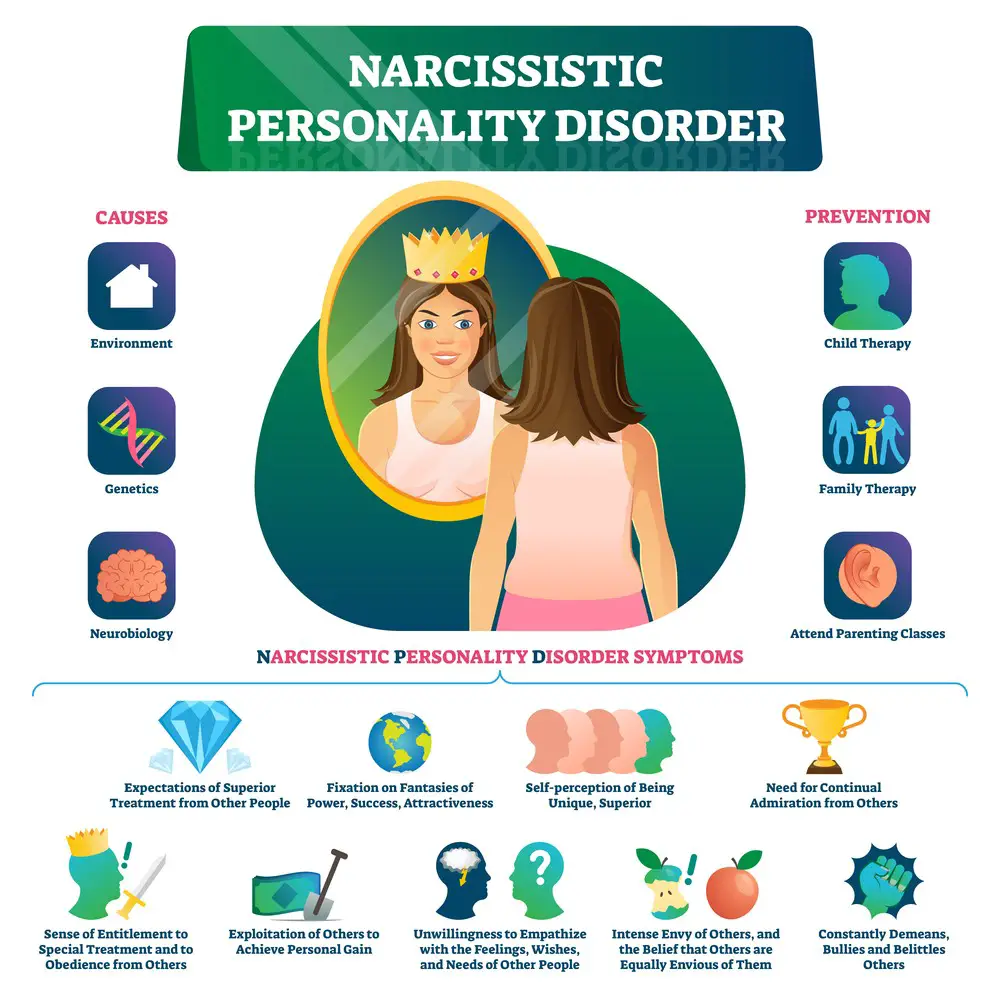 Understanding a Narcissist
Understanding a Narcissist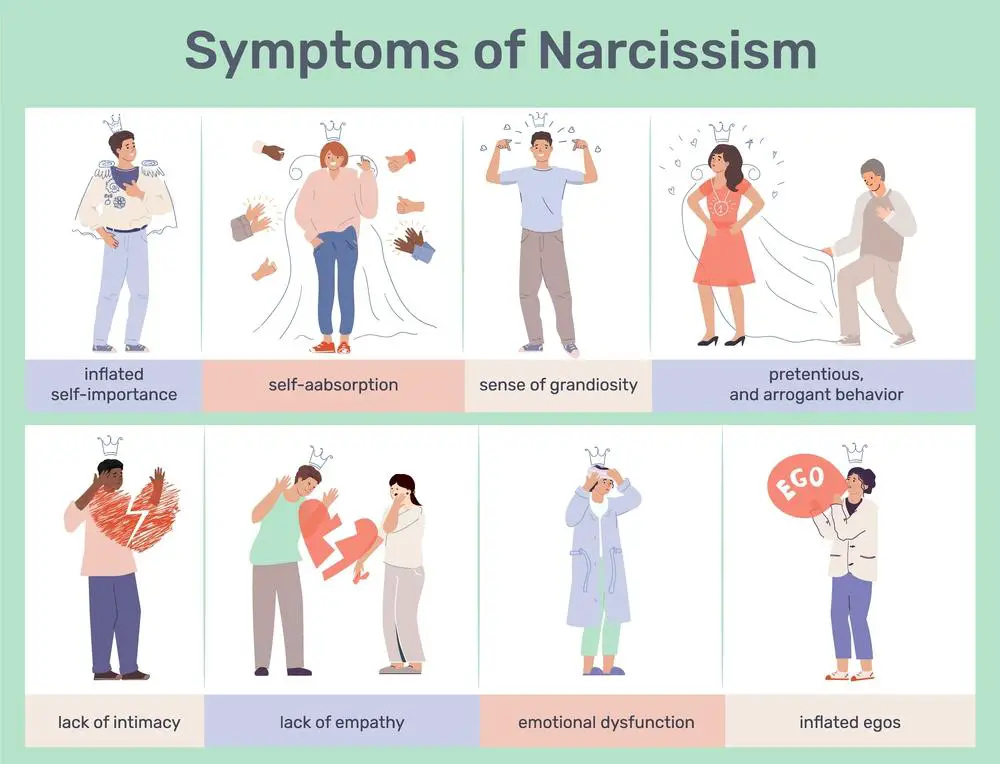 The Objectives of Ignoring
The Objectives of Ignoring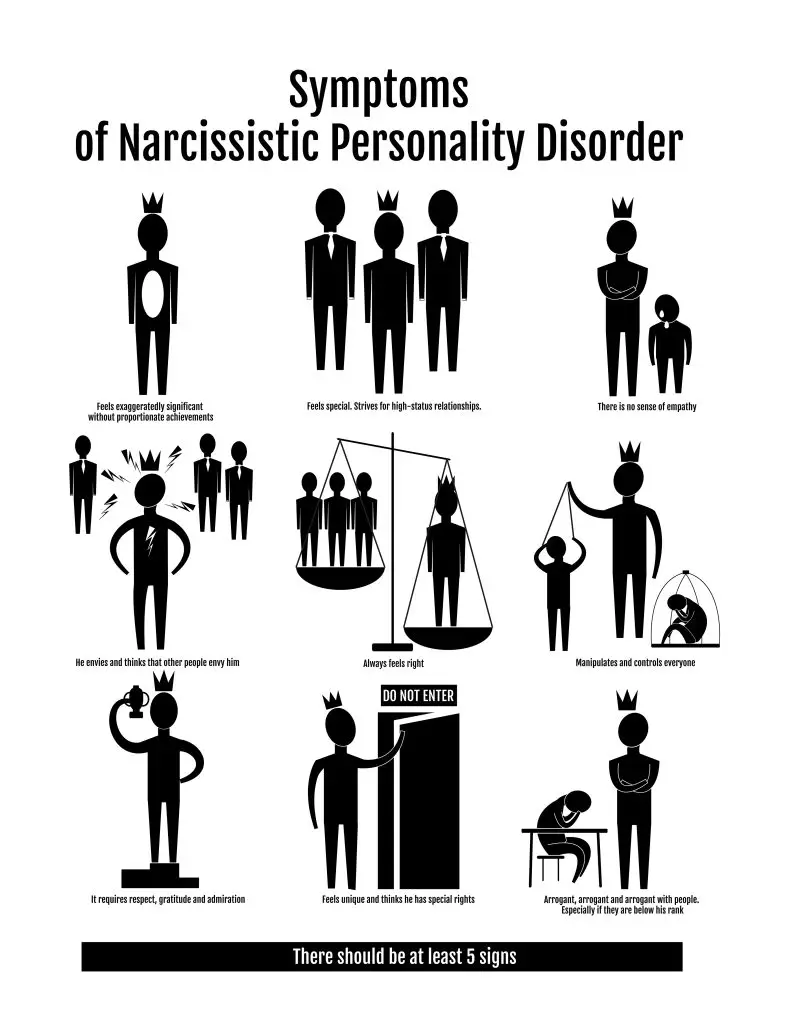 The Emotional Roller Coaster
The Emotional Roller Coaster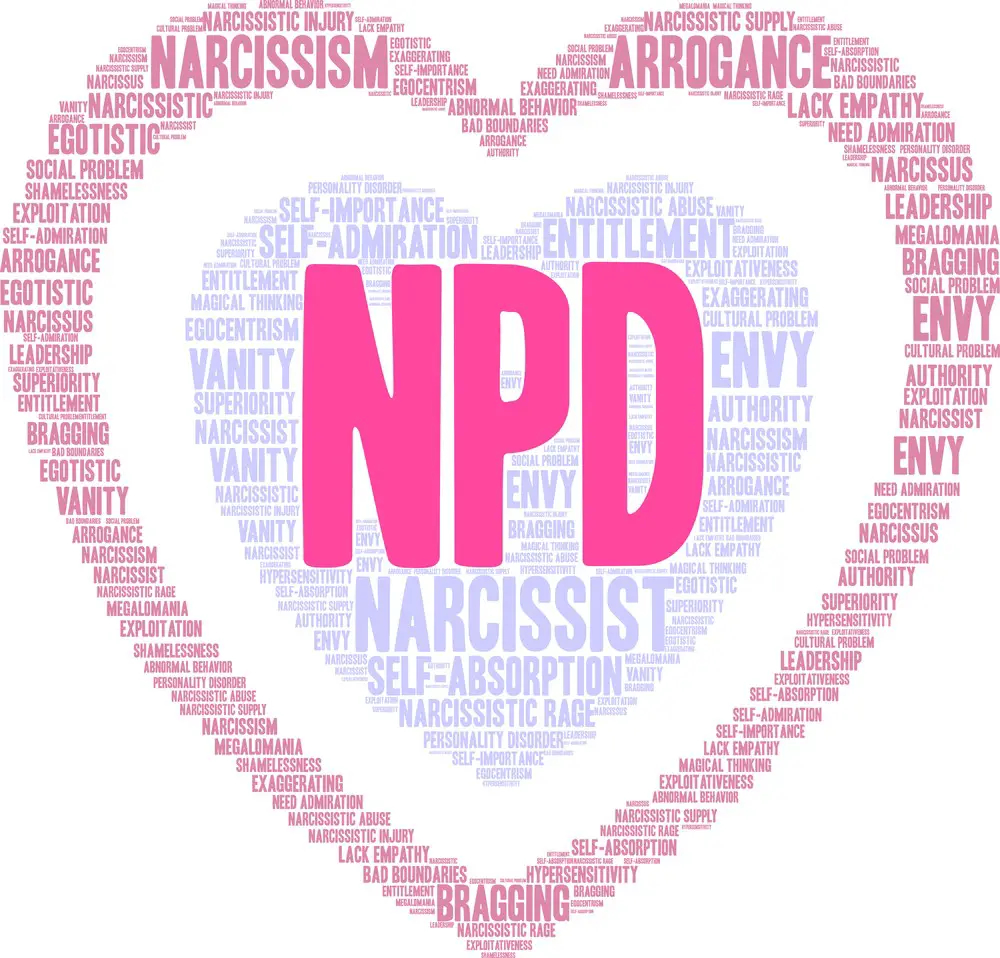 Gaslighting and Stonewalling
Gaslighting and Stonewalling Seeking Narcissistic Supply
Seeking Narcissistic Supply The Cycle of Love-Bombing and Devaluation
The Cycle of Love-Bombing and Devaluation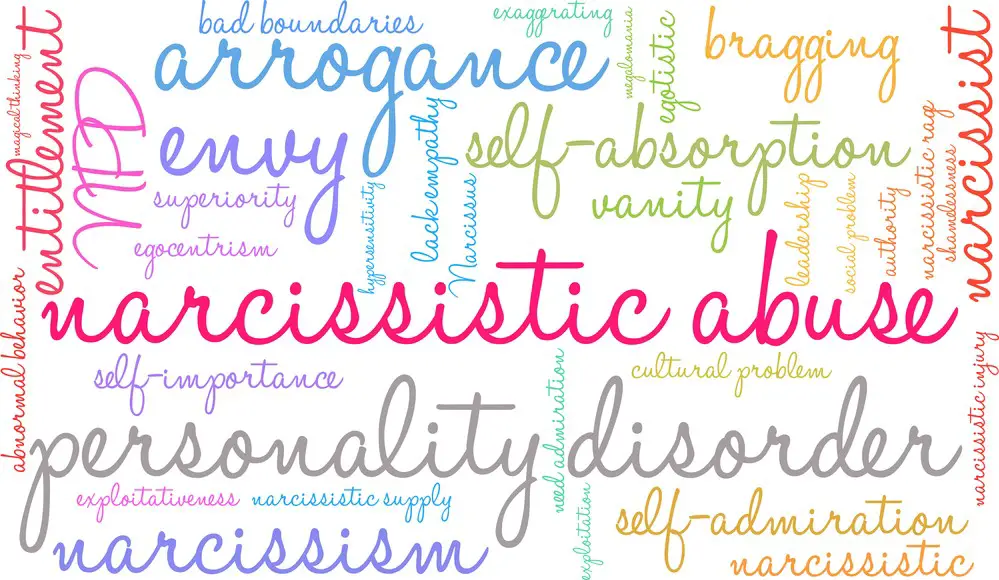 Impact on the Victim
Impact on the Victim Setting Boundaries and Taking Control
Setting Boundaries and Taking Control Seeking Support and Therapy
Seeking Support and Therapy
